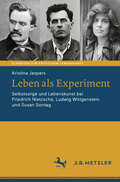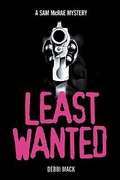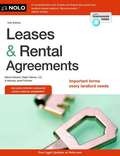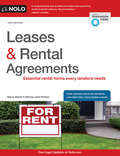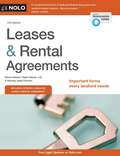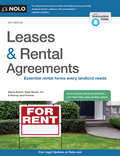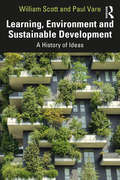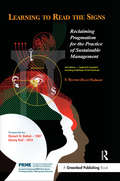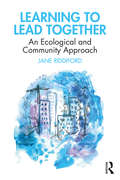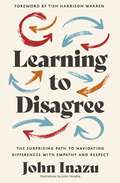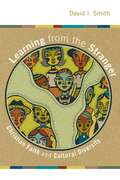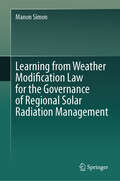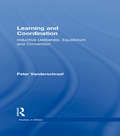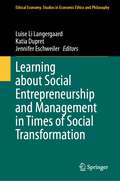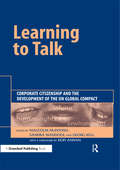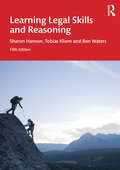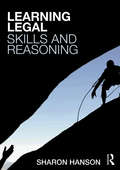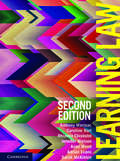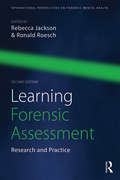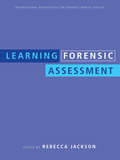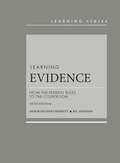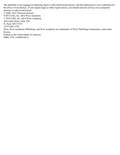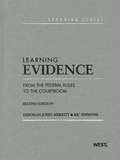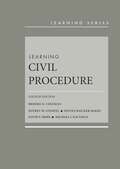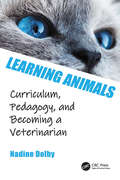- Table View
- List View
Leben als Experiment: Selbstsorge und Lebenskunst bei Friedrich Nietzsche, Ludwig Wittgenstein und Susan Sontag (Schriften zur Kritischen Lebenskunst)
by Kristina JaspersFriedrich Nietzsche, Ludwig Wittgenstein und Susan Sontag beschäftigten sich intensiv mit Fragen der Selbstsorge und Lebenskunst – teils im direkten Bezug aufeinander. So sah Wittgenstein in Nietzsche ein Vorbild in Fragen der Stilistik und Introspektion; Sontag wollte Wittgenstein in der Konsequenz seiner Lebensentscheidungen folgen und Nietzsche in seinem Selbstbewusstsein sowie in seiner radikalen Selbstkritik. Diese Arbeit untersucht drei Experimentierfelder, auf denen Nietzsche, Wittgenstein und Sontag sich erprobt haben und macht diese für heute fruchtbar: Ortswechsel dienen der Veränderung des äußeren Umfelds, der Suche nach neuen Anregungen oder dem Rückzug in eine ihnen gemäße Umgebung. Die Beschäftigung mit Gesundheit und Krankheit betrifft ihre psychische wie physische Verfasstheit und schließt mentale Übungen ein. In der künstlerischen Praxis suchen alle drei neue Erfahrungen, ein anderes Selbsterleben sowie Ausdrucksmöglichkeiten jenseits der Sprache.
Least Wanted
by Debbi MackStephanie Ann Sam McRae's busy, but orderly life as a Maryland lawyer takes a chaotic turn when two clients are accused of murder. A poor, black girl is accused of killing her mother. A young man suspected of embezzlement is accused of murdering his boss. The cases collide in a bizarre way around girl gangs and computer porn. A maniac killer stalks Sam, who must learn the truth or die trying.
Leases and Rental Agreements (Tenth Edition)
by Ralph Warner Janet Portman Marcia StewartLooking for a quick way to create the key documents necessary for owning or managing rental property, including a legally valid lease or rental agreement? Leases & Rental Agreements provides the practical and legal information necessary you need. With this bestselling guide, you'll learn how to: - prepare a rental agreement or lease - tailor your documents to meet your needs - make required disclosures to tenants - comply with your state's laws on security deposits, privacy rules, discrimination and more - check tenant references and credit - do a final inspection when a tenant moves out This edition provides updated 50-state information on security deposits, rent rules, access to rental property and more, plus an expanded chart on state disclosure laws.
Leases & Rental Agreements: Keep Your House or Walk Away With Money in Your Pocket
by Janet Portman Marcia StewartCreate a solid, binding lease that complies with your state laws If you rent out residential real estate, you need to create documents that are legally valid where your rental property is located. Every state’s rules are different when it comes to what landlords must include in their leases, and stationery store forms don’t tell you what you need to know. Not only does this book contain instructions on how to tailor your rental documents to your state’s laws, it also gives you customizable copies of key rental forms you need, including: a fixed-term lease a month-to-month rental agreement a rental application tenant reference and credit check forms move-in and move-out letters, and a property inspection checklist. The 13th edition is completely updated to reflect the latest state landlord-tenant laws—find out what your state requires regarding security deposits, entry to rental property, disclosures, termination notices, and much more. This new edition also covers topics relevant to today’s landlords, such as how to handle online transactions, how to make sure e-signatures are valid, and how to comply with laws protecting your tenants’ private information.
Leases & Rental Agreements (7th edition)
by Ralph Warner Janet Portman Marcia StewartThis excellent book should be required reading for all landlords and tenants. It is easy reading yet filled with important, accurate and profitable information.
Leases & Rental Agreements
by Janet Portman Marcia StewartEssential rental forms every landlord needs Looking for a quick way to create the key documents necessary for owning or managing rental property, including a legally valid lease or rental agreement? Leases & Rental Agreements provides the practical and legal information necessary you need. With this bestselling guide, you'll learn how to: prepare a rental agreement or lease tailor your documents to meet your needs make required disclosures to tenants comply with your state's laws on security deposits, privacy rules, discrimination, and more check tenant references and credit, and do a final inspection when a tenant moves out. The 12th edition provides updated 50-state information on security deposits, rent rules, access to rental property and more. All forms are downloadable from the Nolo website.
Learning, Environment and Sustainable Development: A History of Ideas
by William Scott Paul VareThis book is an introduction to the long history of human learning, the environment and sustainable development – about our struggles with the natural world: first for survival, then for dominance, currently for self-preservation, and in future perhaps, even for long-term, mutually beneficial co-existence. It charts the long arc of human–environment relationships through the specific lens of human learning, putting on record many of the people, ideas and events that have contributed, often unwittingly, to the global movement for sustainable development. Human learning has always had a focus on the environment. It’s something we’ve been engaged in ever since we began interacting with our surroundings and thinking about the impacts, outcomes and consequences of our actions and interactions. This unique story told by the authors is episodic rather than a connected, linear account; it probes, questions and re-examines familiar issues from novel perspectives, and looks ahead. The book is of particular interest to those studying (and teaching) courses with a focus on socio-economic and environmental sustainability, and non-governmental organisations whose work brings them face-to-face with the general public and social enterprises.
Learning to Read the Signs: Reclaiming Pragmatism for the Practice of Sustainable Management (The Principles for Responsible Management Education Series #2)
by F. Byron NahserThe PathFinder Lab Journal Field Notebook (Appendix III) is available here. It's not what we know, but how we learn. This is the key that Learning to Read the Signs uses in order to evaluate and apply ideas and facts to one's organization life. The book asks the reader to go back to and reclaim pragmatism: an activity of thought involving four parts: Investigation, Hypothesis, Action, and Testing. Pragmatism is a method of interpretation or inquiry which offers to the thoughtful business practitioner a way to better understand the reality in which we operate, to think critically and creatively, and for business people to think together to make the best use of all our perspectives and talents. Questions raised in this book include: What are the signs telling us? Where are we headed and why? Why are things going the way they are? What is our purpose? Examples abound of companies and organizations that have failed to "read the signs": the automobile and the financial services industries are obvious examples. Doing business successfully in the 21st century means becoming aware of the filters that modify and limit business vision in our culture. Without this awareness, many businesses will continue to fall into short-term reactive thinking. In a world facing unprecedented social, environmental, and economic challenges, learning to read the signs is a business imperative. This is not a how-to book in the sense that it provides ten easy answers to everyday business problems. The help it gives is much more profound. This book outlines a mode of inquiry that can be used to solve cognitive as well as ethical questions. Drawing on the deepest resources of philosophical pragmatism, Nahser shows us that often we do not even know the right question to ask, that we must start by trusting our doubts and seeing where they lead, so that we can even begin to ask the right questions. He brings philosophy down to earth by showing that a practical philosophy can call into question our outworn assumptions, open up new lines in inquiry, and lead to conclusions we never imagined at the beginning of the process – conclusions not just about what to do next, but about our larger purposes, those frameworks that give us meaning and direction. In this long-overdue and radical update to his seminal book, Ron Nahser turns his attention to how pragmatism can be can be practiced by the management of business, government, and non-profit organizations to create both success and a better world for all.
Learning to Lead Together: An Ecological and Community Approach
by Jane RiddifordNever before has there been such strong recognition of the importance of community-based green spaces to local communities and urban redevelopment. This book is an autoethnographic account of the challenges and breakthroughs of learning to lead together. The interwoven stories provide first-hand, evocative examples of how an ecological and community approach to organisational development and urban regeneration helped shift the business as usual paradigm. It will help you identify and step beyond individualistic and ‘heroic’ notions of leadership, and will inspire you to find your own way of embracing natural and shared authority. The book focuses on the experiences of developing an environmental education charity in London; Global Generation. It shows how action research, nature practice and storytelling has successfully grown shared purpose, trust and collaboration, both within Global Generation and in the wider community. The style and structure of the book reflects the participatory approach that it presents. The author, Jane Riddiford, deliberately challenges the norms of authorship, which is shaped by the dominant Western narrative – objective, authorless and ‘othered’. This book goes beyond this narrow framework, combining different styles of writing, including traditional and autobiographical storytelling, diary entries and co-writing. Along with practice accounts of what happened, challenges raised and lessons learned, each chapter will also include other people’s descriptions of their experience of being involved in the process.
Learning to Disagree: The Surprising Path to Navigating Differences with Empathy and Respect
by John InazuAre you discouraged by our divided, angry culture, where even listening to a different perspective sometimes feels impossible? If so, you're not alone, and it doesn't have to be this way. Learning to Disagree reveals the surprising path to learning how to disagree in ways that build new bridges with our neighbors, coworkers, and loved ones--and help us find better ways to live joyfully in a complex society.In a tense cultural climate, is it possible to disagree productively and respectfully without compromising our convictions? Spanning a range of challenging issues--including critical race theory, sexual assault, campus protests, and clashes over religious freedom--highly regarded thought leader and law professor John Inazu helps us engage honestly and empathetically with people whose viewpoints we find strange, wrong, or even dangerous.As a constitutional scholar, legal expert, and former litigator, John has spent his career learning how to disagree well with other people. In Learning to Disagree, John shares memorable stories and draws on the practices that legal training imparts--seeing the complexity in every issue and inhabiting the mindset of an opposing point of view--to help us handle daily encounters and lifelong relationships with those who see life very differently than we do.This groundbreaking, poignant, and highly practical book equips us to:Understand what holds us back from healthy disagreementLearn specific, start-today strategies for dialoguing clearly and authenticallyMove from stuck, broken disagreements to mature, healthy disagreementsCultivate empathy as a core skill for our personal lives and our whole society If you are feeling exhausted from the tattered state of dialogue in your social media feed, around the country, and in daily conversations, you're not alone. Discover a more connected life while still maintaining the strength of your convictions through this unique, often-humorous, thought-provoking, and ultimately life-changing exploration of the best way to disagree.
Learning from the Stranger: Christian Faith and Cultural Diversity
by David I. SmithCultural differences increasingly impact our everyday lives. Virtually none of us today interact exclusively with people who look, talk, and behave like we do. David Smith here offers an excellent guide to living and learning in our culturally interconnected world. / Learning from the Stranger clearly explains what "culture" is, discusses how cultural difference affects our perceptions and behavior, and explores how Jesus' call to love our neighbor involves learning from cultural strangers. Built around three chapter-length readings of extended biblical passages (from Genesis, Luke, and Acts), the book skillfully weaves together theological and practical concerns, and Smith’s engaging, readable text is peppered with stories from his own extensive firsthand experience. / Many thoughtful readers will resonate with this insightful book as it encourages the virtues of humility and hospitality in our personal interactions — and shows how learning from strangers, not just imparting our own ideas to them, is an integral part of Christian discipleship.
Learning from Weather Modification Law for the Governance of Regional Solar Radiation Management
by Manon SimonThis book investigates the role of cloud seeding laws in governing regional solar radiation management (SRM) activities. It challenges the prevailing belief that cloud seeding laws are irrelevant to regional SRM governance and argues for their applicability. Through case studies in Australia, Canada, and the United States, the book highlights the need for legal frameworks that promote cross-scale interactions, stakeholder participation, flexible decision-making, and conflict resolution. It advocates for adopting adaptive governance principles to effectively manage the risks and uncertainties associated with regional SRM interventions. By filling a gap in the existing literature, this book offers valuable insights and recommendations for the governance of regional SRM, shedding light on the potential of cloud seeding laws to inform and shape SRM governance frameworks. It provides a comprehensive analysis of the legal and normative aspects, offering practical guidance for policymakers, researchers, and stakeholders involved in regional SRM initiatives.
Learning and Coordination: Inductive Deliberation, Equilibrium and Convention (Studies in Ethics)
by Peter VanderschraafVanderschraaf develops a new theory of game theory equilibrium selection in this book. The new theory defends general correlated equilibrium concepts and suggests a new analysis of convention.
Learning about Social Entrepreneurship and Management in Times of Social Transformation (Ethical Economy #66)
by Luise Li Langergaard Katia Dupret Jennifer EschweilerThe book brings together perspectives on entrepreneurship research, education and practice to understand social entrepreneurship in its wider societal, political and economic context. Its unique contribution comes from its interdisciplinary approach that spans from the societal to the organizational level, with specific focus social innovation and management. It views management of social entrepreneurship and social enterprise in light of its societal context and employs social innovation to critically assess social entrepreneurship as driver of change. The emergence of social entrepreneurship as an academic field is linked to several societal trends such as public austerity, financial crises, new social challenges and a growing counter-movement to globalised capitalism. Generally seen as organisations serving both social and economic objectives, social enterprises, social innovation and social entrepreneurship have their roots in civil society, civic activism or the solidarity economy, but also manifest themselves as for-profit companies, with new organisational forms emerging and old ones changing. The contributions in this book elucidate these developments and the role of social entrepreneurs and social enterprises. Furthermore, the book offers great insight into the specific ways of managing, leading and creating innovation in social enterprises as well as perspectives on how to understand their social impact or value creation.
Learning To Talk: Corporate Citizenship and the Development of the UN Global Compact
by Sandra Waddock Georg Kell Malcolm McintoshThe UN Global Compact complements other corporate citizenship initiatives by promoting dialogue on the relationship between business and society. At the same time it is the only truly global corporate citizenship initiative. It is not an auditable standard; indeed, it is not a standard or a code in the way that these are normally viewed. It is a set of principles through which business and the United Nations can work in partnership for global social development. For some businesses it is a simplified codification of their existing policies and management practices, but for many engagement represents a challenge and an opportunity to raise their game by aligning profitability with the common good. As the only genuinely global corporate citizenship initiative, the Global Compact draws its moral authority from the UN Secretary-General and its moral and political legitimacy from the UN as the only global political body. It can be viewed as a series of nested networks involving the Secretary-General's Office, the ILO, UNEP, UNHCHR, UNDP and UNIDO, business, NGOs and labour. It can variously be described as an international learning network, as a social network of people and organizations engaged in a global conversation, as a global public policy network, and as a multi-stakeholder dialogue. It is all of these things, but more than anything its greatest success has been in providing a convening platform for a growing global conversation about social development among a variety of actors. However the Global Compact is viewed, it is time to reflect on the first tentative steps of an initiative born in the aftermath of the Cold War, in the "triumph of global economic liberalism" and mass demonstrations against "globalisation". In its first few years, the world has experienced 9/11 and the Iraq War, not forgetting the forty or so civil wars that are ongoing at this time. Whatever is written about the UN Global Compact or its success will be tentative. But there can be some serious reflection on its aims and origins; some telling of stories of engagement; and discussion on how this initiative has quickly become an important reference point in the dialogue on global and corporate governance.
Learning Legal Skills and Reasoning
by Sharon Hanson Tobias Kliem Ben WatersLanguage skills, study skills, argument skills and the skills associated with dispute resolution are vital to every law student, professional lawyer and academic. The 5th edition of Learning Legal Skills and Reasoning draws on a range of areas of law to show how these key skills can be learnt and mastered, bridging the gap between substantive legal subjects and the skills required to become a successful law student. The book is split into four sections: Sources of law: Including domestic, European and international law. Working with the law: Featuring advice on how to find and understand the most appropriate legislation and cases. Applying your research: How to construct a legal argument, answer a problem question and present orally (mooting). Skills for solving disputes: From negotiation to mediation and beyond. Packed full of practical examples and diagrams to illustrate each legal skill, this new edition has been fully updated and now includes a new chapter on drafting. It will be an essential companion for any student wishing to acquire the legal skills necessary to become a successful law student.
Learning Legal Skills and Reasoning
by Sharon HansonLanguage skills, study skills, argument skills and legal knowledge are vital to every law student, professional lawyer and academic. Learning Legal Skills and Reasoning discusses the main sources of English law and explains how to work with legal texts in order to construct credible legal arguments which can be applied in coursework, exams or presentations. Learning Legal Skills and Reasoning Discusses how to find and understand sources of both domestic and European Union Law Develops effective disciplined study techniques, including referencing, general reading, writing and oral skills and explains how to make good use of the university print and e-library Contains chapters on writing law essays, problem questions and examinations, and on oral skills including presentations and mediation skills Packed full of practical examples and diagrams across the range of legal skills from language and research skills to mooting and negotiation, this textbook will be invaluable to law students seeking to acquire a range of discreet legal skills in order to use them together to produce competent assessed work.
Learning Law
by Jennifer Nielsen Adrian Evans Anthony Marinac Caroline Hart Rhianna Chisholm Asmi Wood Sarah McKibbinLearning Law is an accessible and engaging introduction to Australian law for students considering a career in the legal profession. This text teaches students how to deal with legislation and cases, focusing on core topics and contextualisation. This second edition has been thoroughly updated and revised, with significant changes including: six new chapters – First Peoples and the law, research, the ethical lawyer, statutory interpretation, lawyers and clients, becoming a lawyer – more coverage of parliaments and courts, new Living Law boxes that showcase the diverse career paths available to law graduates and new Critical Perspective boxes to engage students with critical analysis. Written in a conversational style, Learning Law will leave students feeling more knowledgeable about, and confident in, their interactions with Australian legal institutions and legal professionals. This text is an essential resource that law students will refer to throughout their studies and in the early stages of their career.
Learning Forensic Assessment: Research and Practice (International Perspectives on Forensic Mental Health)
by Rebecca Jackson and Ronald RoeschMajor developments in the field since the publication of Learning Forensic Assessment are integrated in this revised edition, including revised editions of the DSM-5, HCR-20 scale, and child custody guidelines. This textbook is designed for graduate students learning forensic assessment and psychologists coming to forensic practice later in their careers. It is organized around five broad areas: Professional and Practice Issues, Adult Forensic Assessment, Juvenile Forensic Assessment, Civil Forensic Assessment, and Communicating Your Findings. Each chapter begins with a strong teaching and learning foundation. The latter part of each chapter is assessment specific, covering available assessment measures and approaches to assessment. The authors go well beyond simple descriptions of assessment measures and provide a conceptual discussion of the evaluation process that helps the reader understand how assessment measures fit into the overall evaluation process. The evaluation component is geared toward assessing the important aspects of the construct as laid out in the early part of each chapter. Each chapter then concludes with a case example to illustrate the measures and techniques described.
Learning Forensic Assessment
by Rebecca JacksonProviding an excellent resource for forensic psychology undergraduate students, this book offers students the opportunity to learn from experts, through the collection of outstanding articles. Unlike other books in the area that are topic specific, it also gives them comprehensive coverage of the subject. Divided into five broad topic areas, it covers: professional issues juvenile assessment criminal forensic assessment civil forensic assessment pervasive issues – malingering and psychopathy. Written by a group of internationally renowned contributors and including didactic information as well as providing discussions on practical issues regarding assessment and assessment instruments, this textbook will be invaluable reading for all students of forensic psychology.
Learning Evidence: From the Federal Rules to the Courtroom (Learning Series)
by Ric Simmons Deborah MerrittAs a part of our CasebookPlus offering, you'll receive a new print book along with lifetime digital access to the downloadable eBook. In addition, you'll receive 12-month online access to the Learning Library which includes quizzes tied specifically to your book, video lectures, “Evidence in Practice” interactive trial videos, an outline starter and three leading study aids in that subject and the Gilbert® Law Dictionary. The included study aids are Federal Rules of Evidence in a Nutshell, Acing Evidence and Exam Pro on Evidence, Objective. The redemption code will be shipped to you with the book. CHAR(13) + CHAR(10) CHAR(13) + CHAR(10)Learning Evidence engages students by offering lucid explanations of each evidentiary rule and colorful courtroom examples that explore how each rule works in practice. The fifth edition has been fully updated to reflect the continued emergence of electronic media, heightened attention to issues of race and gender, and recent amendments to the Federal Rules of Evidence. CHAR(13) + CHAR(10) CHAR(13) + CHAR(10)To deepen student learning, this edition comes with digital study aids, accessible at eproducts.westacademic.com. The study aids include hundreds of multiple choice, short answer, and essay questions; thirteen videos that review difficult subjects; and seven interactive simulations in which students take the role of a trial attorney or judge during a trial and then make or rule on objections in real time.
Learning Evidence: From the Federal Rules to the Courtroom
by Ric Simmons Deborah MerrittLearning Evidence engages students by offering colorful courtroom examples, excerpts from trial transcripts, and lucid explanations of each evidentiary rule. <p><p>The fourth edition has been fully updated to reflect the continued emergence of electronic media, the Supreme Court’s Sixth Amendment jurisprudence, and recent amendments to the Federal Rules of Evidence. To deepen student learning, the edition includes links to a dozen online videos, as well as interactive simulations in which students play the role of trial lawyers or judges.
Learning Evidence: From The Federal Rules To The Courtroom
by Deborah Jones Merritt Ric SimmonsLearning Evidence engages students by offering colorful courtroom examples, excerpts from trial transcripts, and lucid explanations of each evidentiary rule. The second edition has been fully updated to reflect the emergence of electronic media, the Supreme Court's Sixth Amendment jurisprudence, and the restyled Federal Rules of Evidence.
Learning Civil Procedure (Learning Series)
by Michael J. Kaufman Steven Baicker-McKee Brooke D. Coleman Jeffrey W. Stempel David F. HerrLearning Civil Procedure provides a broad, student-centered, user-friendly approach to civil procedure that is both clear and sophisticated. Students build mastery of the material through the presentation of examples and analyses. Students then move on to involved problems similar to what they will encounter on final examinations, bar examinations, and as lawyers. The book makes great use of problems to facilitate dialogue in class and correspondingly uses many fewer case excerpts than does the typical casebook. Students will emerge as competent and culturally literate lawyers because the book also includes the core "canon" of civil procedure opinions as well as sufficient historical background. <p><p>Learning Civil Procedure is a book designed by authors who both teach and litigate, making it the perfect tool for ensuring that students are ready for the classroom, the bar exam, and real-world litigation practice.
Learning Animals: Curriculum, Pedagogy and Becoming a Veterinarian
by Nadine DolbyWe are surrounded by thousands of animals, alive and dead. They are an intimate and ever-present part of our human lives. As a society, we privilege veterinarians as experts on these animals: they are our educators and teachers in what they say, what they do, and the decisions that they make. Yet, within the field of education, there is little research on the curriculum, pedagogy, and experiences of veterinary school and students. What do veterinarians learn in veterinary school? How do their experiences during those four years shape their perceptions of animals? How do the structures, curriculum, and pedagogy of veterinary college create and influence these experiences? Learning Animals opens up this conversation through an exploration of the complicated, fascinating and often painful stories of a cohort of veterinary students as they make their four-year journey from matriculation through graduation. The book examines how the experiences of veterinary students shape how humans relate to animals, from public policy and decision-making about the environment and animals slaughtered for food, to the most personal decisions about euthanizing companion animals. The first full-length, critical, qualitative study of the perspectives of our primary teachers about animals, this will be a thought-provoking read for those in the fields of both educational research and veterinary education.
